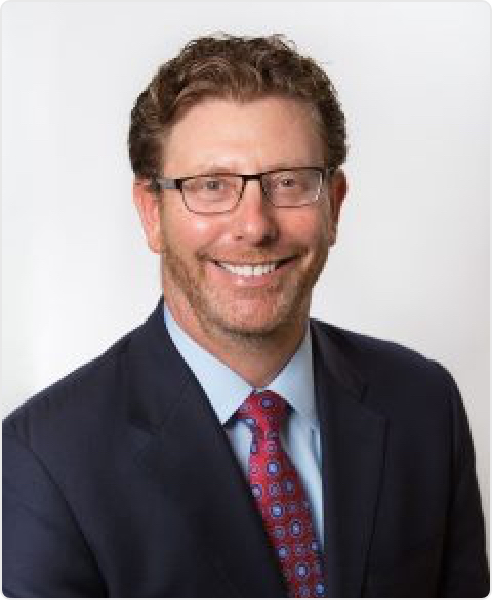Financial Compliance Services with Todd Cipperman
With new financial products like crypto assets and blockchain coming online all the time, how do they interact with regulatory compliance? Todd Cipperman breaks down the compliance landscape and talks about how to get and stay in compliance!
Listen to us On
About the Episode
LifeBlood: We talked about financial compliance services, the regulatory challenges of emerging technologies like crypto assets, blockchain and fintech companies, why compliance is mundane but not intuitive, the reasons why people outsource it, and how it’s better to ask permission than seek forgiveness when it comes to this space with Todd Cipperman, Founding Principal of Cipperman Compliance Services.
Listen to learn why it’s essential to not be married to our ideas and what we think is true!
For the Difference Making Tip, scan ahead to 17:50!
You can learn more about Todd at Cipperman.com, Twitter and LinkedIn.
Thanks, as always for listening! If you got some value and enjoyed the show, please leave us a review wherever you listen and subscribe as well.
You can learn more about us at MoneyAlignmentAcademy.com, Twitter, LinkedIn, Instagram, Pinterest, YouTube and Facebook or you’d like to be a guest on the show, contact George at [email protected].

George Grombacher
Lifeblood Host

Todd Cipperman
Guest
Episode Transcript
Come on.
george grombacher 0:12
Life blood defy this is George G. And the time is right. welcome today’s guest strong and powerful Todd Superman. Todd, are you ready to do this? I can’t wait. All right, let’s let’s let’s go. Todd is the founding principal of Superman compliance services. They’re an organization providing CHIEF COMPLIANCE OFFICER services to money managers, registered funds, family offices, private equity firms, broker dealers, FinTech companies, again, excited to have you on Todd, tell us a little about your personal apps more about your work,
Todd Cipperman 0:40
why you do what you do. why I do what I do? Well, I am I’ve been I’m a lawyer, by training, I’ve been a securities lawyer for hard to believe 30 years, I’m married, I have two college aged daughters. And why I do what I do, I used to work at a big company, and I was General Counsel there. And I really did enjoy that work a lot. But I was I have an entrepreneurial bent, and I was getting a lot of calls, from what we refer the industry as emerging managers, these are not huge, these are not fidelity Vanguard, these are, you know, entrepreneurs looking to get into money management business. And fundamentally, you know, most most of my clients and most people I talked to under the right thing, it’s just compliance ain’t their thing. Regulatory stuff ain’t their thing. And I really felt that I could build a fund that allows them to do the two fundamental things they need to do, which is run money and raise money. And then we would take care of made sure that you get in trouble with the regulator. And that is real, that was really our founding principle. And it’s 18 years, 18 years later, here were nice.
Unknown Speaker 1:40
18 years, 30 years. So I’m going to show off my math skills here. 12 years, 12 years in the belly of the beast working for some big companies, and now 18 years on on on your own. So probably seen most of it. And just when you think that, then all of a sudden we have this whole brave new world of new things popping up.
Unknown Speaker 2:02
Yeah, it’s really interesting. I mean, I tell people, I do compliance, and they sort of glaze over because it’s just not terribly sexy. But including my college aged daughters who really glaze over, but I, I’ll tell you, the truth is, given where I am, I’m on the entrepreneurial sort of tip of the spear, if you will, in financial services. And there is actually nothing sexier right now the financial service, there’s so much going on, whether everything from private funds to cryptocurrency to payment for order flow, and GameStop, and all this good stuff. And as a firm, you know, we’re right in the middle of that, you know, we’re dealing with all these entrepreneurs doing this kind of stuff, you know, sometimes it’s really cool work for big companies, which I have done. But you know, they don’t sometimes don’t get into these sort of new cutting edge issues. And it’s really interesting. And then of course, later on, oh, you know, real crises like a pandemic, and it’s even been more challenging. I would say fun. My, I think the worst thing in the world for someone like me is to be bored. I’d rather be challenged, busy, angry, upset than bored out of my mind. And I gotta tell you in 18 years, I have never been bored in the corporate world. It was It was great. I learned a lot I there was a lot of boredom, a lot of meetings, I didn’t want to go to I don’t have that anymore. And and hopefully we’ll make life easier for our clients. And so yeah, it’s been crazy. And it’s, it’s a brave new world out there. There really is. We see people doing all kinds of things trying to invest, invest capital, trying to figure out how to make money.
Unknown Speaker 3:33
How do you he talked about how people’s eyes glaze over, I totally get it. And people probably have a perception that you’re more the police than you are anything else, and so on and so forth. But how how do you think about compliance?
Unknown Speaker 3:51
Yeah, listen, there’s a lot of things you have to do run business. And that’s that is the reality. What we do is, is not rocket science by any stretch. But there’s a lot you have to know, you can’t just add water and become a regulatory specialist. It doesn’t work that way. I don’t think our clients really should be expected or really incur that burden. I think they do what they do, which is run businesses. And I think it’s really hard for them without expert help to get there without sort of what we call getting into regulatory footfalls. You know, I like I said, I come across bad people in my 30 year career. Yeah, of course, I have. I would say it’s an infinitesimally small number. Most of them really want to do the right thing, but don’t know what to do. Some, you know, want to do as much as they possibly can to push the envelope that’s less less typical. Well we try to do is say, hey, look, we’ll put the bubble wrap around you. We will give you clear rules of the road as to what you can and can’t do. We’ll take care of this stuff. So you don’t have to freak out worry about it. You know, he and I think we like it. My marketing people hate this term. But I think ourselves almost like a landscaper. Yeah, you could do it yourself if you had the experts to use the time and the people. But why would you? I mean, I think that’s really where we come at this. And, you know, and I always say to people would, you know, like you, you run a show, right. And, and people look at you say, you know, could I run the show? Maybe they could, maybe they couldn’t, but there’s a lot more to it. And we sort of say the same thing. Could you do compliance? Yeah, you’re smart enough. But could I run portfolio management? They’d be like, no, yeah, that you’re not that I think that’s the kind of thing we’re experts, what we do, so that you can kind of go do your thing, we try to avoid that what you call the cop or we can call the finger waggers. You know the people that get up in front of the room, wag your finger edges, they do this don’t do that, frankly, our clients don’t care, they don’t really care, we take on that role for them. So we’re not wagging their finger, we just give them rules of the road. And I think that looks a lot better. That’s our that’s our view of the world.
Unknown Speaker 6:02
Yeah, well, that certainly does make sense. And I don’t understand why your marketing people don’t like that analogy. I think it’s excellent that
Unknown Speaker 6:11
they prefer, we’re experts in something you don’t need to be but the lamp, but you know, I find what I find about people the best in business, the really, really smart people, and tend to be really, really successful. Right. And I think a lot of smart and successful people make a mistake, which they think that, you know, because they’re good at one thing, they they should be good at everything. And that, and I don’t think this is true. And also intelligence doesn’t equal knowledge. I’m not saying that my clients aren’t more smarter than I am. But they might very well be. But I know more about this. And they know more about that. And I think that that is a mistake, a lot of really smart offers, meaning, hey, I’m really good at this. I can do everything myself. I also think that there’s what I call I call it I think I’ve borrowed some of the entrepreneurs fallacy, which is people go into business they like, and they want to just do everything. But the reality is, there’s only so much time in a day, right? You think as an entrepreneur, you have unlimited time, you just keep doing, we get to a certain point as your business grows, like, time becomes the most precious commodity. And I always say to them, why would you spend your time on compliance when you can hire someone at a lot less cost? If you look at your internal costs of doing that. And I see that a lot without really smart entrepreneurs. There’s there’s the they’re super people, and they are, but they shouldn’t, even if they could do everything they shouldn’t. And they probably could do everything if they wanted to.
Unknown Speaker 7:42
Yeah, yeah, that’s really does make sense. It really is. It’s It’s It’s a trap for sure. So with with new, you talked about how with tip of the spear, and this is an extremely exciting time and dynamic time. How do you how do you navigate new marketplaces?
Unknown Speaker 8:05
Yeah, it’s hard. I’ll be honest, it is it is. It is a challenge. There’s a lot of real, what I’ll call heavy, heavy lifting in this space. So every day of my work life, I get up and I read multiple publications, then includes I read three newspapers a day, which is the Wall Street Journal, The New York Times, and the Philadelphia Inquirer. I’m based outside of Philadelphia. I also read the apple news feeds to see what sort of the general path is looking at. But that’s the beginning of it. Then I go the SEC website, FINRA, I read third party, third party reviews, I read se I’m at the SEC website, I do all this stuff. And this is every day in my life. And I’ve gotten good at this apply takes me two hours to go through all that every day. And then I if I find something, what I think my clients are interested in, I write about it. And I’ve had a blog on compliance, which I know it sounds even sexier than doing compliance but of why I actually wrote a book about compliance. I’ve gone further where I tell someone sort of in about a couple of sentence, something that interesting that happened. And there’s two reasons I do that. One is yes, I went in for my clients, what what’s going on, and give them some some actual information. But also it helps me I find that discipline of reading and creating that blog. It lodges it in my head. So within that, that that, that that brain of that sort of small brain of mine, I got all this stuff floating around. So it is a lot of work. And I’m just one person, we have a form 23 people, they’re all doing the same thing. So we’re all constantly surveilling the marketplace. And then once I learn the regulatory stuff, then it gets harder. So let’s let’s take cryptocurrency. It’s a great example. The regulatory side isn’t all that complicated, because all regulation but understanding how the market works. I’ve spent a lot of time reading. I’m not an expert. I know my way around. And that’s just from doing our and again, if you’re an entrepreneur, unless you’re in the cryptocurrency business, do you really want to know all that? Or do you want to find someone who spends their time doing that? And that’s really how we do it. So there’s a lot of spadework there. And then I think the bigger part is taking that all that data, and as I call it, data, and sort of putting in information. So my daily blog, like I said, is, I think each blog post about 100 words, to take something very complicated sift through the entire world and say, Okay, here’s one. on one topic in 100. Words, we have heard back that our clients and prospects in France find that very useful. And I think that’s where the world’s going, there’s so much information. It’s, it’s the people that can make that helpful. I think it’s really interesting. In many ways, we went through this sort of information disintermediation phase where people want to direct access. Now, there’s so much information will go in the other direction, where you’re relying on trusted sources like you, frankly, to sort of sift through that and tell people what’s important. And we think that’s a real value add for us. Yeah,
Unknown Speaker 11:04
I couldn’t agree more. And what a What a great habit to be in to wake up every day and to read through newspapers and go to the FINRA and sec websites and digest everything in two hours. And then to write about I think, is, George,
Unknown Speaker 11:20
I’ve been doing this since 2008. This plot? I mean, I’ve been reading for my talk for the blog of 2008. And I say it’s daily, it’s probably it’s three to five times a week, depending on the news. And the number one thing people ask me, when they meet me is who writes that? Like, who do you think writes that? I think people have this view that there’s some shortcut. But there really isn’t because that’s, it really is a creative, mental analytical exercise that I do. There’s no service that can do that for you. It’s just it aside some like, like us. So it’s really interesting. But that’s a normal question. I get who does that now? And they’re like, how do you do that? I’m like, I get up every day, I read a bunch of stuff. And I write and I write something. It’s a discipline to just,
Unknown Speaker 12:06
yeah, for sure. So for people who are who are entering into let’s just let’s just use cryptocurrency or blockchain, or some of the things you mentioned, or trauma trading game stuff, or just trading GameStop. And I’m also curious what your take is on odd people talking about people talking about investing, and all these things on social media. That’s fascinating to me. I just can’t imagine that. A lot of that is necessarily compliant. But just I guess, why don’t we talk about that real quick?
Unknown Speaker 12:41
Sure. And again, I want to talk about this as a finance professional, it’s really a compliance issue. I, I think it will need to distinguish, saving, investing. And, and fun, because the three are really different, right? We save money to buy a house, hopefully, for education for our children, that’s saving. And I think that has its own thing, right? You got to be you got to be more conservative. This is not money, you want to lose his nest egg stuff. There’s done that that would say there’s investing, which is, yeah, I don’t need this to eat. I don’t need this for my house. But I want to see if I can create some long term security for myself. That’s investing. And then there’s fun. And I think this whole game stop. And some AMC and some other of these online. So I think the regulator is is I think it needs to be reviewed. But I think a lot of people out there for them. It’s fun money. It’s no different than going to DraftKings and live betting a football game. I don’t think anything wrong with that. I just think the question becomes, are people you putting it in the right context? Listen, I have a drink once in a while, right? I don’t drink a bottle of jack daniels every night. So I think like anything else, there’s a time and a place. I’m not against what happened with GameStop. I think if people want to mess around and throw a few bucks at it and see if they can. Great. That’s what the market beware. I think the issue becomes where does that fit in your greater investing life? Don’t Don’t bet the farm on you know, the game stock rise in the next two days because I’ve been I’ve been around a long time. I’ve seen remember the Asian flu crisis in the 90s I eggs are huge. Remember that? The stock market crash 87 the you know.com bust. I remember the financial crisis. I’ve been through a lot of stuff. And you know, the little guy gets hurt. And and if you’re okay with the money, that’s fine, but just Just be careful out there is what I would say.
Unknown Speaker 14:47
Yeah, I think that that’s well said. So for people who are who are establishing a new venture or thinking about a new venture from a compliance standpoint how how do they need to go about thinking about the things they say
Unknown Speaker 15:02
I would say the number one thing I have learned and I say to people is it’s not intuitive that we hear this all the time, I talked to a real good prospect or potential client, and they’ll say, Well, you know, we can figure this out. And I’m like, we’re good, guys. I hear that a lot. We’re good guys. generically speaking, we do the right thing. And I’m like, Yeah, but it’s not really about being a good guy, you actually have to, there’s rules you have to follow that are not particularly intuitive. Under the securities laws, and I’m not going to get into those because they’re boring. You’re not going to spend the time to learn those rules on how to comply with those. You think about it, like, you know, any kind of highly regulated industry, I sort of joke that it goes back aways that we call it the American system, and I call it the communist system, the American system is like, you can do anything you want, as long as there’s no law prohibiting it. Well, the communist system was just the opposite, right? It was you can’t do anything unless it’s permitted. Financial Services, regulation is closer to the ladder, there’s really not much you can do that there’s not some regulation, either prescription or prescription. That doesn’t apply. So don’t think you could just figure it out because of your moral compass. Yeah, it’s good. It’s good not to steal from clients. It’s good not to lie, don’t lie, don’t cheat, don’t steal. That’s a good thing to live by, generally speaking, but it’s not necessarily going to be enough to make sure you avoid the SEC bring enforcement case against you, which can get very ugly.
Unknown Speaker 16:31
Yeah, I imagine that an ounce of prevention is is better than a pound of cure.
Unknown Speaker 16:35
This is this is not an ask forgiveness kind of situation. It is. I hear that from salespeople all the time. I’ll do it. I’ll ask forgiveness later. And now because that doesn’t work, once there’s an enforcement case, then unfortunate case lives forever on the internet, and shows up every time you try to get a client, this financial services and ask permission kind of place and that’s nobody wants to hear that. But that’s where we come in. That’s why there’s a lot of lawyers making 1000 bucks an hour in this area. Because as they say, Why do they charge 1000 bucks an hour? Because they can get it?
Unknown Speaker 17:09
Well, there you go. That’s that makes all sense of the world. Without the people ready for that difference making tip do you have for them?
Unknown Speaker 17:19
Mike, Mike, difference making tip is, don’t be locked in to what you see today. I think people get too narrowly focused on the here and now. Their current organization. What’s cool, keep your eyes wide open. See where you can take your time and treasure and apply it in such a way that not only helps other people, but maybe makes you better and makes you happier. I think that is great
Unknown Speaker 17:49
stuff that definitely gets Come on. Come on. Thank you so much for coming on. Where can people learn more about you? How can they engage? Where can they find the blog?
Unknown Speaker 17:57
It’s a Superman. Just like your thoughts with the CCI p p er ma n.com. And you can access the blog through our website.
Unknown Speaker 18:06
Excellent. Well, if you enjoyed this as much as I did show, appreciation and share today’s show with a friend who also appreciate good ideas, go to Superman. com that’s cprmn.com and learn about everything that Todd is working on and check out the blog and appreciate the fact that he wakes up every day and reads for two hours and then produces. Thanks again, Todd. Thank you. And until next time, keep fighting the good fight. We’re all in this together.
Transcribed by https://otter.ai
More Episodes
How to Catch Up if You Don’t Have Enough Saved for Retirement so You Don’t Have to Move in with Your Kids
All kidding aside, you moving in with your kids isn’t an attractive scenario for you, or them. A top concern for many Americans is not having enough money saved for retirement. If that’s true for you, I’m going to get you moving in the right direction so...
How to Get Out of Debt : Three Essential Areas to Focus On
Debt is crushing us. It crushed me for a long time. Getting out of debt is one of the most important financial priorities anyone can have and becoming debt-free is one of the greatest gifts we can give ourselves. If you’re in debt, odds are you feel like...
Why Financial Wellness is More than a 401(k) and How to Effectively Support your Employees
Financial wellness is more than the annual 401(k) enrollment meeting, and you know it. Or, maybe you don’t. I wish we could offer a 401(k) to employees and have them become financially successful by osmosis. Just like I wish we could offer gym memberships to employees...
Mind Your Own Business: Increase Personal Responsibility through Self-Care
When was the last time someone told you to mind your own business? When was the last time you told someone to mind their own business? It’s time everyone starts doing it, here’s why: We’ve got a fuck-load of problems. The Borgen Project has a list of the...
Taking Personal Responsibility for Your Potential
“Education is the passport to the future, for tomorrow belongs to those who prepare for it today.” - Malcolm X Things are changing fast. We know so much more today than we the previous generation knew at this point in their lives. But it’s too much. As we...
Financial Wellness: 9 Rules for Life
Financial wellness is a lot like personal finance; it’s in the eye of the beholder. You’re financial desires could be focused on accumulating millions, while mine could be focused on finding security and increasing certainty. One’s idea of being financially well...
Budget Categories: Getting Clear on Wants Versus Needs
There are literally hundreds of potential budget categories you could track. If you’re looking for an exhaustive analysis of those hundred categories, you’re in the wrong place; turn back now. If you’re looking for a breakdown of the most common and...
Know Your Worth: How to Find and Embrace Yours
“Our duty is to encourage everyone in their struggle to live up to their own highest idea, and strive at the same time to make the ideal as near as possible to the truth.” -Swami Vivekananda I want to let you in on a secret. You know how you look at other people...
No Money: How to Break the Cycle of Poverty
It sucks to have no money. Systemic poverty is present all over the world and all over our Country. Close to half the people on Earth live on less than $5 a day. Almost half of Americans are living paycheck to paycheck, which means they’re...
Join the show.
Interested in being on the show? Tell me a little bit more about you and what you’d like to talk about!














